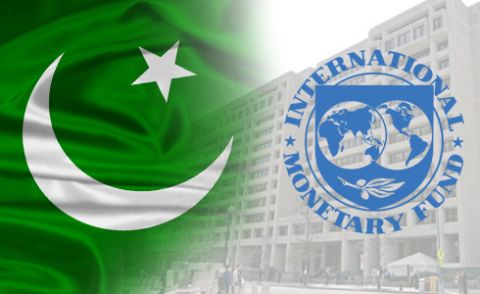ISLAMABAD: International Monitoring Fund (IMF), the main source of foreign debts to Pakistan, has expressed its concern over the subdued economic progress in Pakistan and urged the government to take advantage of the current global growth upswing.
In its latest economic review on the economic growth of Pakistan, Afghanistan, Middle East and North Africa, the IMF said the economic prospects in these regions remained subdued primarily because of the ongoing adjustment to low oil prices and regional conflicts.
The IMF in its latest Regional Economic Outlook said these countries should capitalise on the current global growth upswing to place their public finances on a sounder footing, accelerate job-creating reforms and diversify their economies.
Commenting on the importance of China Pakistan Economic Corridor (CPEC), known as China’s Belt and Road Initiative, the IMF said Pakistan and its neighbouring countries would benefit from such important projects.
Although, the IMF is of the view that over the medium term, growth is anticipated to accelerate gradually in most of these countries but it will remain below what is needed to tackle the high level of unemployment in these areas and raise standards of living for all.
The IMF commented that due to more oil export, lower growth and stubborn budget deficit in Pakistan and some of the other countries in Asia will create problems of the governments to keep the balance of payments.
Pakistan is one of the leading countries in the world for availing loans from the IMF and according to reports, the external debt to Pakistan will increase to over $ 80 billion in the second quarter of 2017 from $ 75 billion in the first quarter of 2017.
The experts of IMF, however, indicated that economic growth in oil importer countries is projected to rise to 4.3 per cent this year from 3.6 per cent in 2016 but it needs strong economic measures with reducing the budget deficit. The upswing is expected to persist in 2018, supported by increasing domestic demand and supportive reforms, said the IMF.
On the fiscal front, the IMF said many oil importer countries like Pakistan continue to struggle with insufficient revenue mobilisation on one hand, and higher current expenditures (including public wage bills) on the other hand. This has pushed public debt to more than 50 per cent of GDP in most countries including Pakistan, therefore, IMF advised to these countries to focus on improving revenue collection and targeted spending cuts, while protecting social and growth-enhancing spending.
Emphasising the need to implement job-creating reforms especially in Pakistan, the IMF suggested that these countries should take advantage of the window of opportunity provided by the strengthening global economy to implement job-creating reforms.
These countries, including Pakistan, need such reforms to tackle their already high unemployment and to absorb the over 26 million young people expected to enter the labour force by 2022. The IMF said that Pakistan can play an important role in boosting the private sector by improving the business environment, transparency and accountability of public institutions, and access to finance. The IMF said that in the current climate of strengthening global recovery, countries like Pakistan should also take advantage of international trade to support their economic growth and they should, therefore, focus on improving the quality of their exports.




